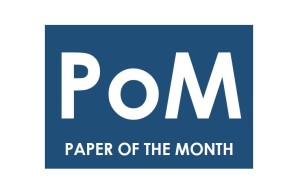Das Prodekanat für Forschung würdigt jeden Monat UKE Autorinnen und Autoren einer herausragenden Publikation, die in den vorangegangenen 2 Monaten hochrangig publiziert wurde. Ziel ist es, die am UKE enstandenen Forschungsergebnisse mit ihrer Bedeutung in der Wissenschaft einer größeren Öffentlichkeit am UKE vorzustellen. Der Aufruf zur Teilnahme richtet sich an Wissenschaftlerinnen und Wissenschaftler aller Fachgebiete. Einreichungsfrist für eine Bewerbung um die Auszeichnung des "Paper of the Month" ist jeweils Ende eines Monats (siehe Bewerbungsformular).
Das PoM-Archiv finden Sie hier:
UKE Paper of the Month August 2025
Pathology-oriented multiplexing enables integrative disease mapping
Malte Kuehl*, Yusuke Okabayashi*, Milagros N. Wong*, Lukas Gernhold*, Gabriele Gut*, Nico Kaiser, Maria Schwerk, Stefanie K. Gräfe, Frank Y. Ma, Jovan Tanevski, Philipp S. L. Schäfer, Sam Mezher, Jacobo Sarabia del Castillo, Thiago Goldbeck-Strieder, Olga Zolotareva, Michael Hartung, Fernando M. Delgado Chaves, Lukas Klinkert, Ann-Christin Gnirck, Marc Spehr, David Fleck, Mehdi Joodaki, Victor Parra, Mina Shaigan Martin Diebold, Marco Prinz, Jennifer Kranz, Johan M. Kux, Fabian Braun, Oliver Kretz, Hui Wu, Florian Grahammer, Sven Heins, Marina Zimmermann, Fabian Haas, Dominik Kylies, Nicola Wanner, Jan Czogalla, Bernhard Dumoulin, Nikolay Zolotarev, Maja Lindenmeyer, Pall Karlson, Jens R. Nyengaard, Marcial Sebode, Sören Weidemann, Thorsten Wiech, Hermann-Josef Groene, Nicola M. Tomas, Catherine Meyer-Schwesinger, Christoph Kuppe, Rafael Kramann Alexandre Karras, Patrick Bruneval, Pierre-Louis Tharaux, Diego Pastene Benito Yard, Jennifer A. Schaub, Phillip J. McCown, Laura Pyle, Ye Ji Choi Takashi Yokoo, Jan Baumbach, Pablo J. Sáez, Ivan Costa, Jan-Eric Turner, Jeffrey B. Hodgin, Julio Saez-Rodriguez, Tobias B. Huber, Petter Bjornstad, Matthias Kretzler, Olivia Lenoir, David J. Nikolic-Paterson, Lucas Pelkmans, Stefan Bonn, Victor G. Puelles
ABSTRACT:
The expression and location of proteins in tissues represent key determinants of health and disease. Although recent advances in multiplexed imaging have expanded the number of spatially accessible proteins, the integration of biological layers (that is, cell structure, subcellular domains and signalling activity) remains challenging. This is due to limitations in the compositions of antibody panels and image resolution, which together restrict the scope of image analysis. Here we present pathology-oriented multiplexing (PathoPlex), a scalable, quality-controlled and interpretable framework. It combines highly multiplexed imaging at subcellular resolution with a software package to extract and interpret protein co-expression patterns (clusters) across biological layers. PathoPlex was optimized to map more than 140 commercial antibodies at 80 nm per pixel across 95 iterative imaging cycles and provides pragmatic solutions to enable the simultaneous processing of at least 40 archival biopsy specimens. In a proof-of-concept experiment, we identified epithelial JUN activity as a key switch in immune-mediated kidney disease, thereby demonstrating that clusters can capture relevant pathological features. PathoPlex was then used to analyse human diabetic kidney disease. The framework linked patient-level clusters to organ disfunction and identified disease traits with therapeutic potential (that is, calcium-mediated tubular stress). Finally, PathoPlex was used to reveal renal stress-related clusters in individuals with type 2 diabetes without histological kidney disease. Moreover, tissue-based readouts were generated to assess responses to inhibitors of the glucose cotransporter SGLT2. In summary, PathoPlex paves the way towards democratizing multiplexed imaging and establishing integrative image analysis tools in complex tissues to support the development of next-generation pathology atlases.
STATEMENT:
This work is the first to demonstrate 100+ protein multiplexed imaging at subcellular resolution (80 nm pixel resolution) using only standard laboratory equipment and accessible reagents. PathoPlex is a scalable, open-source framework that can be implemented by any laboratory, making spatial proteomics more accessible. Our paradigm-shifting approach to analysing multiplexed data focuses on subcellular information at the pixel level rather than on traditional cell-level metrics. This enables the detection of disease-relevant protein patterns across diverse tissues. We demonstrate the method's clinical relevance by identifying therapeutic targets and early pathological changes in diabetic kidney disease, showcasing its potential to transform routine pathological assessment and accelerate biomarker discovery across multiple organ systems.
BACKGROUND:
This study was performed in an international cooperation led by Prof. Victor Puelles, who holds a dual professorship for Complex Tissue Analysis at UKE and Aarhus University since 2022. Given the magnitude of the study, we have 5 co-first authors and 8 co-senior authors and over 70 coauthors. From the 13 leads (co-first/co-senior), 4 co-first and 3 co-senior are directly affiliated with UKE. In addition, 28 coauthors are also affiliated with UKE. 7 different UKE departments/institutes are involved. Finally, this worked was supported by major German funding bodies, including DFG, BMBF, and EKF.
Nature, 2025; ISSN 1476-4687 (online)
Congratulations to all authors!
Next PoM: To apply, the publication must have been published in July 2025. Applications will be considered in two rounds of the selection process, i.e. two months. Please send your completed PoM application to Dr. Anne Wulf by 30/09/2025.

